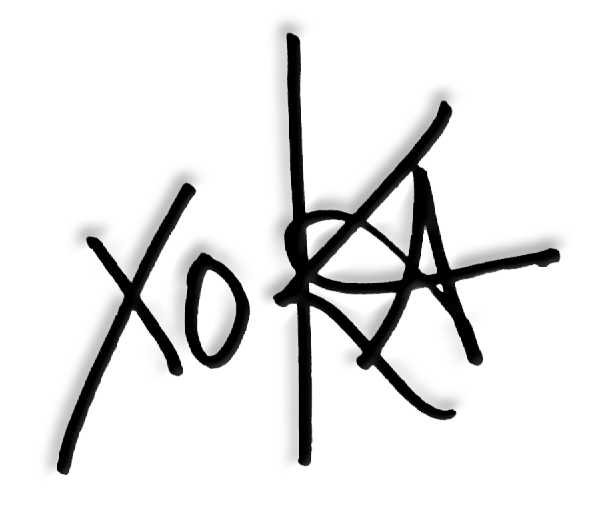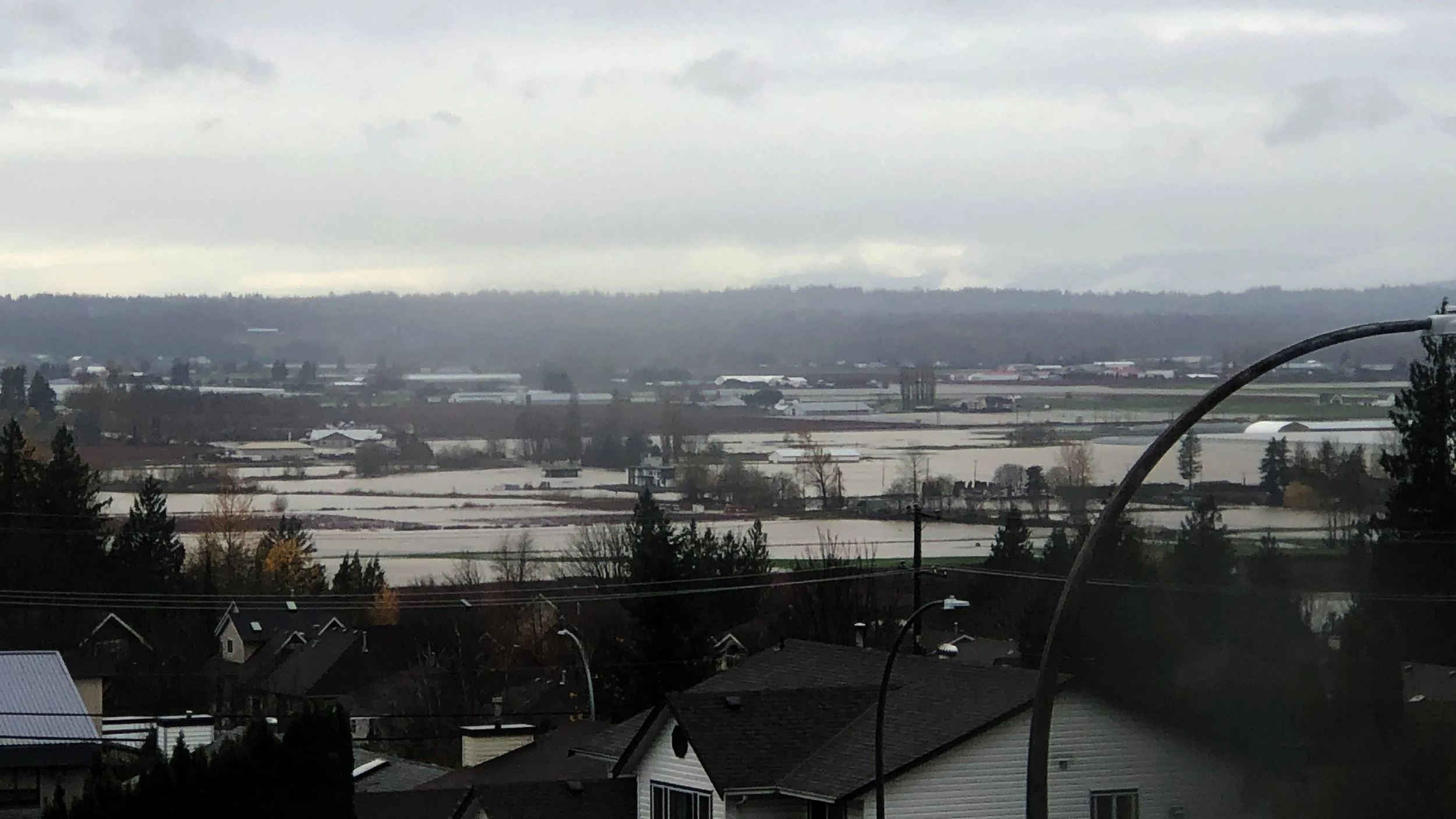Floods, Fires, and Farmland: Climate Change in BC's Backyard
This afternoon the Mayor of Abbotsford made the heartbreaking choice to sacrifice a dozen homes in hopes of saving the rest. I've never heard a room full of reporters quite so silent.
Sunday morning I went to the grocery store with my father. We couldn't believe the rain. On the way back we cut through the Matsqui Prairie and commented how high the water in the fields was getting. A not uncommon site for the area, a few times a year heavy rains turn the corn fields into ponds where geese paddle about. Less than 24 hours later the water would cover the hoods of pickup trucks, flood historical Clayburn Village, cause creeks to jump roads, and mudslides to crash through homes.
Every neighbourhood around mine was put on evacuation alert. Then evacuation order. We were the lucky ones, safe and dry. Up the mountain we hit mudslides, and down the mountain there were floods. The only thing to do was stay put and wait.
And that was only the beginning.
Monday afternoon the Nooksack River in Washington state breached the levees quickly drowning the small towns of Everson, Nooksack, and Sumas. We followed along on social media as friends there were rescued by boat leaving behind a home we now know will take at least 6 months to get back into. The Mayor of Sumas took to posting his cell phone number on the city Facebook page, updating when to make a run for it and when to stay put and hold on.
The flood plain doesn't care that it spans two countries. When the Nooksack River overflows it drains north, and the water doesn't stop until it reaches the Fraser.
Abbotsford is the largest city in BC by area at nearly 400km2. Much of the city sustained damage from the heavy rains, but that is not the crisis we face. Right now a flood has taken hold of Sumas Prairie, an area 90 kilometres square. To put that in local terms, it could fit the entire City of Burnaby. And the water continues to rise.
For days farmers have desperately tried to salvage the farms that make up most of the area. Twenty thousand head of cattle. Hundreds of thousands of chickens. The city begged them to leave, but the farmers persisted in chest deep freezing toxic water. Calves were loaded into boats, cows dragged behind jet skis. The unspoken truth is so many animals have already perished.
What is now the Sumas Prairie for 8000 years was a lake. Semá:th Xo:tsa, home to the Semá:th First Nation. I've heard it called the "supermarket" for the surrounding Indigenous communities as it once teemed with salmon, trout, and sturgeon. In the 1920s settlers in the region lobbied the government to have it drained. The lake was shallow (10-15 feet), marshy, and full of mosquitoes. They wanted to build farms.
So the Barrowtown Pump was born. The four largest pumps in western Canada can move 250,000 gallons of water a minute. It is second only to the hospital in the importance of Abbotsford's infrastructure. Those pumps keep the Fraser River from turning the prairie back into a lake in normal times.
But these are not normal times. In June of this year it was 45ºC at my house. I have lived here for 27 years and only in the last half dozen do I remember temperatures reaching the 30s. The past few days I've seen the "experts" of Facebook try to say this flooding happens regularly, that it compares to the one in 1990. That climate change isn't real. Amazingly some of them are even people from BC.
Floods, fires, tornados, heat domes... it's time to face reality: climate change is happening. And it's in our backyard. We don't have to look to the sinking islands of far off countries to see it. It is in the City of Lytton, burned to the ground after a pyrocumulonimbus. It is the City of Merritt, where the overflowing Coldwater River carved a new channel through the middle of town. And now, it is the City of Abbotsford.
A hundred years ago our grandparents didn't know about climate change. They ignored the First Nations people and drained a very valuable ecological resource, and celebrated their technological advancement over nature. My heart breaks for how their opinion was ignored, and their land taken.
But so too does it break for the farmers losing the life they've known for generations. I think of the person I know who lost the home they bought less than a month ago. And of Birchwood Dairy where so many from the valley have spent a summer afternoon eating ice cream and watching the cows. It breaks for the salmon spawning habitats that have been damaged, and for the losses yet to be counted.
The Mayor made an impossible choice to build a levee that will cause a dozen homes to be lost but Tuesday another storm is on the horizon. And the city, like the planet, is running out of time.
2021-11-15 - View of the Matsqui Prairie, Abbotsford BC

